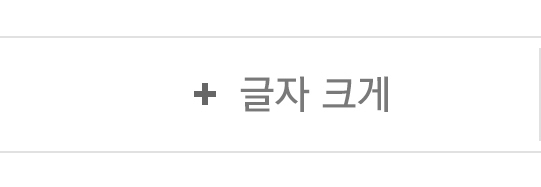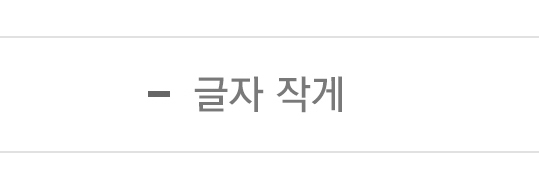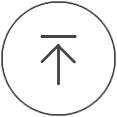
|
[RH] 카페인이 소비자 지출에 미치는 영향은? | |||
| ‘저널 오브 마케팅(Journal of Marketing)’ 저널에 발표... |


  |
 |  |
 |
[RH] 카페인이 소비자 지출에 미치는 영향은?
사우스 플로리다 대학교(University of South Florida)이 주도한 한 국제 연구에 따르면 카페인은 사람들이 구매와 쇼핑 시 지출하는 금액에 영향을 미친다.
사우스 플로리다 대학교 연구팀은 소매점을 대상으로 3가지 실험을 진행했다.
‘저널 오브 마케팅(Journal of Marketing)’ 저널에 발표된 이 연구에서 연구팀은 매장을 돌아다니기 전에 무료로 제공된 카페인 커피 한 잔을 마신 쇼핑객이 디카페인이나 물을 마신 쇼핑객보다 약 50% 더 많은 돈을 쓰고 거의 30% 더 많은 품목을 구매한다는 사실을 발견했다.
강력한 각성제인 카페인은 뇌에서 도파민을 방출하여 마음과 몸을 흥분시킨다. 이것은 더 높은 에너지 상태로 이어지며, 이는 차례로 충동성을 높이고 자제력을 감소시킨다. 결과적으로 카페인 섭취는 더 많은 구매 품목과 더 많은 지출 측면에서 쇼핑 충동으로 이어지는 것이다.
연구팀은 프랑스의 소매체인 및 가정용품 매장, 스페인의 백화점 입구에 에스프레소 머신을 설치하는 실험을 진행했다. 매장은 쇼핑객들이 입장하자마자 300명 이상에게 무료 컵을 제공했다. 약 절반에게는 약 100mg의 카페인이 함유된 커피가 제공되었고, 나머지는 디카페인 또는 물이 제공되었다.
이후 그들이 매장을 나갈 때 연구팀은 그들의 영수증을 조사했다. 연구팀은 카페인을 섭취한 사람들이 디카페인이나 물을 섭취한 사람들보다 훨씬 더 많은 품목을 구매하고 더 많은 돈을 지출한다는 사실을 발견했다!
연구팀은 카페인이 구매한 품목 유형에도 영향을 미친다는 사실까지 발견했다. 카페인이 든 커피를 마신 쇼핑객들은 향초, 향수 등 비필수 품목을 다른 쇼핑객보다 더 많이 구매했다. 그러나 주방용품, 수납바구니 등 실용구매에 있어서는 두 집단 사이에는 큰 차이가 없었다.
연구팀은 실험실에서 또 다른 실험을 설계했고 이번에는 온라인 쇼핑과 관련하여 유사한 결과를 얻었다. 그들은 200명의 경영대학교 학생들에게 카페인이 함유된 커피와 카페인이 없는 커피를 섭취한 이들로 구분지어, 미리 선택된 66가지 옵션 목록에서 구매할 품목을 선택하도록 요청했다. 카페인을 섭취한 사람들은 마사지기 등 충동구매로 간주되는 품목을 더 많이 선택했고, 다른 사람들은 노트북과 같은 실용적인 품목을 더 많이 선택했다.
이 연구 결과는 적당량의 카페인 섭취는 건강에 긍정적인 영향을 미칠 수 있지만 쇼핑하는 동안 카페인을 섭취하면 의도하지 않은 결과가 발생할 수 있다는 점을 보여준다. 따라서 충동적 소비를 통제하려는 소비자는 쇼핑하기 전에 카페인이 든 음료를 섭취하는 것을 피해야 한다.
반면에 소매업체는 쇼핑객이 매장에 들어올 때 카페인을 제공하면 매출과 마진이 향상된다는 것을 잊지 말아야 할 것이다.
- JOURNAL OF MARKETING, July 11, 2022, “EXPRESS: Caffeine’s effects on consumer spending,” by Dipayan Biswas, et al. © 2022 by American Marketing Association. All rights reserved.
To view or purchase this article, please visit:
 |  |
 |
[RH] Caffeine’s Effects on Consumer Spending
An international study led by the University of South Florida found that caffeine impacts what people buy and how much they spend when shopping.
The research team ran three experiments in retail stores. In their study published in the Journal of Marketing, they found that shoppers who drank a cup of complimentary caffeinated coffee prior to roaming the stores spent about 50 percent more money and bought nearly 30 percent more items than shoppers who drank decaf or water.
Caffeine, as a powerful stimulant, releases dopamine in the brain, which excites the mind and the body. This leads to a higher energetic state, which in turn enhances impulsivity and decreases self-control. As a result, caffeine intake leads to shopping impulsivity in terms of a higher number of items purchased and greater spending.
The experiments involved of setting up an espresso machine at the entrances of a retail chain and home goods store in France and a department store in Spain. Upon entry, more than 300 shoppers were provided a complimentary cup - with about half offered coffee that contained about 100 mg of caffeine and the others decaf or water.
They then shared their receipts with the researchers as they exited the stores. The team found that caffeinated individuals purchased a significantly higher number of items and spent more money compared to those who had decaf or water.
The researchers found that caffeine also impacted what types of items they bought. Those who drank caffeinated coffee bought more non-essential items than the other shoppers, such as scented candles and fragrances. However, there was a minimal difference between the two groups when it came to utilitarian purchases, such as kitchen utensils and storage baskets.
The researchers set up another experiment in a lab and received similar results, this time regarding online shopping. They split the study pool of 200 business school students between individuals who consumed caffeinated and decaffeinated coffee and asked them to pick which items they’d purchase from a preselected list of 66 options. Those who consumed caffeine picked more items considered to be impulsive purchases, such as a massager, while others selected more practical items, such as a notebook.
While moderate amounts of caffeine intake can have positive health benefits, there can be unintended consequences of being caffeinated while shopping. So, consumers trying to control impulsive spending should avoid consuming caffeinated beverages before shopping.
On the other hand, retailers may find that offering shoppers caffeine as they enter their stores improves their revenues and margins.
- JOURNAL OF MARKETING, July 11, 2022, “EXPRESS: Caffeine’s effects on consumer spending,” by Dipayan Biswas, et al. © 2022 by American Marketing Association. All rights reserved.
To view or purchase this article, please visit:

.jpg)
.jpg)
.jpg)

